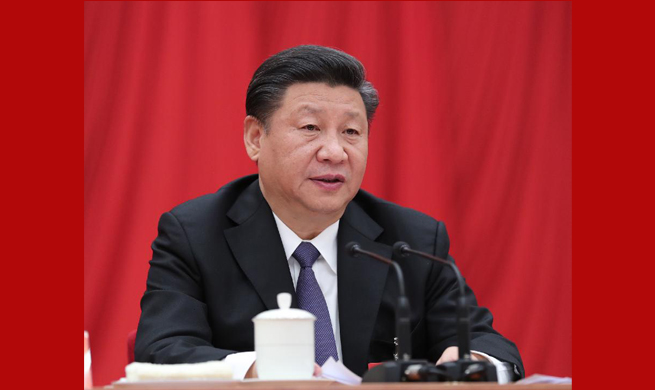WASHINGTON, Feb. 28 (Xinhua) -- U.S. economic growth was slightly weaker than initially estimated, with real gross domestic product (GDP) expanding at an annual rate of 2.5 percent in the fourth quarter of 2017, the Commerce Department said on Wednesday.
The department in January estimated last quarter's growth rate at 2.6 percent. The downward revision, which based on more complete source data, primarily reflects a slight downward revision to private investment, said the department.
Consumer spending, which accounts for more than two-thirds of U.S. economic output, grew 3.8 percent, the fastest pace since the fourth quarter of 2014.
Robust domestic needs spurred imports, which grew at an upwardly revised 14 percent, the quickest pace since the third quarter of 2010. Imports are counted as a subtraction in the calculation of GDP.
As growth of imports outpaced that of output, the resulting trade deficit sliced off 1.13 percentage points from GDP growth rate, said the department.
The U.S. economy picked up steam in the second and third quarter of 2017, with growth rate surpassing 3 percent for two consecutive quarters.
For the whole year of 2017, real GDP increased 2.3 percent, compared with an increase of 1.5 percent in 2016. The pace, however, was well below the 3 percent target set by the Trump administration.
The economic expansion might lose further momentum in the first quarter of 2018, with recent data showing home sales and industrial production falling in January. Forecasting firm Macroeconomic Advisers projected on Tuesday that GDP would increase 1.8 percent in the first quarter.
U.S. economy has been suffering from weak first quarter due to seasonal factors in recent years. Economists, however, expect the economy will pick up steam later in the year, due to tax cuts and hiking government spending.
"The robust job market should continue to support growth in household incomes and consumer spending, solid economic growth among our trading partners should lead to further gains in U.S. exports, and upbeat business sentiment and strong sales growth will likely continue to boost business investment," Federal Reserve Chairman Jerome Powell told lawmakers on Tuesday.

















